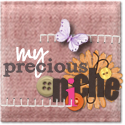
You and your toddler will have lots of fun playing these simple games, and they'll help her development, too.
12 to 16 months
a.) Coming to life
Pretend your child's favorite teddy or doll is real — make him walk, go to bed, or dance across the room. Include him in everyday activities — sitting him at the table for dinner, for example, and putting a bib on him. Talking about what you're doing will help your toddler with her language skills. Act out happy and sad times, too, so she can learn about feelings and emotions as she's developing her imagination.
b.) Push me, pull you
If your toddler is pulling herself up and trying to walk, help her practice with a pushing and pulling game. Use a moveable object such as a child-size chair or plastic stacking box filled with soft toys. While she holds the edges for support you can hold the other side and keep it steady. Then slowly pull the box toward you to encourage her to step forward. Soon she'll start to push while you gently pull. This will build her confidence for the day she finally walks on her own.
c.) Clap happy
By now your toddler can hold her hands open, but it may be a while before she claps independently. For now, clap them together for her, or let her hold your hands while you pat them together. Sit her facing you on the floor or on your lap, and sing clapping songs like patty-cake. These will boost her language skills as well as her hand-eye coordination.
d.) Who's hiding here?
Just as she loved peek-a-boo as a baby, your toddler will love to play simple games of hide-and-seek. First thing in the morning take turns hiding under the bed sheets; at bath time, use a big towel. For extra fun and giggles you can gently prod her as she hides. "Hmm, is this a leg? Or is it an arm?" Games like this help teach your toddler that just because she can't see something, doesn't mean it isn't there. For a change, while she's wrapped up in the towel, carry her into another room. She'll be delighted when she pops her head out to discover she's in a new spot.
16 to 20 months
a.) Tea party
On a sunny day, take a child-sized plastic tea set outdoors and fill a large plastic bowl with water. Pretend you've "come to tea" and encourage your toddler to fill the teapot and pour the tea. This fun game will challenge his coordination skills and help him learn about the properties of water — for example, that it always flows down, not up.
b.) Block patterns
This requires some concentration on your toddler's part, so it's best played when he's feeling refreshed. Use his building blocks to make simple patterns, such as three in a row or "two up, two down" to make a square. Encourage him to use other blocks to copy your pattern. Then let him try making his own pattern, which you have to copy. Sorting objects like this into shapes will help encourage your toddler's problem-solving skills.
c.)Roll it to me
Balls are popular toys for toddlers. Bouncy balls are best kept outside, but soft, foam balls make great indoor toys. The best ball game to start playing with your toddler is an easy version of "catch." Both of you sit on the ground facing each other with your legs apart and toes touching. You can now roll the ball backward and forward to each other without it going out of bounds. Fun for building arm muscle strength and hand-eye coordination.
d.) Young collector
Go for a walk together and take a bucket with you. Collect small objects that interest your toddler — stones, leaves, pine cones. Your toddler will want to carry the bucket, but don't be surprised if he also dumps its contents and starts again. Toddlers this age love to fill containers just so they can empty them again. Meanwhile, he's practicing his hand movements and developing dexterity.














0 comments:
Post a Comment